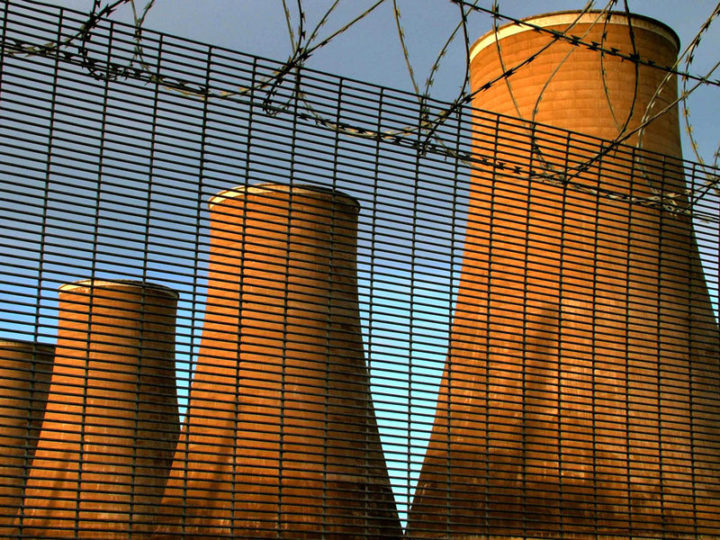Sturgeon’s Scotland: California of the UK?
Prospect of a Labour-SNP government raises intriguing questions on energy
By Richard Black
Share
Last updated:
By Richard Black, ECIU Director
Away from the parlour game of ‘what did Nicola Sturgeon really say?’ lurks a Scottish question far more interesting and important for the future of the UK: What might the SNP demand on energy as the price for supporting a Labour government in Westminster?

Before last year’s referendum on Scottish independence, North Sea oil and gas formed the centrepiece of the SNP’s plans for keeping Scotland’s budget in the black.
Given the recent oil price plummet, you’d have to ask how sound that idea looks now or indeed in the future.
With or without independence, the decline and possible extinction of the North Sea industry remains an important issue for Scotland, not least because of the hundreds of thousands of jobs it sustains.
Coal is already a tiny industry, and will shrink still further with the imminent closure of Longannet power station.
The Scottish government is also committed to approving no more nuclear power stations after the current ones at Torness and Hunterston close in 2023.
So with coal and nuclear in near-terminal decline and prospects for oil and gas uncertain, where are the energy and the jobs and the revenue to come from?
To put it another way: If the SNP does end up supporting a Labour-led administration in Westminster, what reforms to UK energy policy might it logically demand?
Renewable vision
The obvious answer is ‘renewables’.
They already supply more than 40% of Scotland’s electricity. Wind and hydro are in the vanguard; solar may have a future as prices fall, and wave and tidal power have huge potential in Scottish waters (although Wales seems to have stolen a lead for the moment with the Swansea Bay tidal lagoon project).
By 2020, the Holyrood government aims to generate from renewables as much electricity as it consumes; and by 2030, it should be a major net exporter of electricity to England, which implies a net movement of money in the other direction whether or not independence comes.

But there’s a catch.
UK government spending on established renewables looks increasingly tight in the years to 2020.
The Levy Control Framework caps financial support from Westminster. But the amount committed is already widely regarded as being too low; its impact has been reduced further by the tumbling natural gas price; and DECC has spent too much of it on eight big projects awarded without competitive tender.
And beyond 2020, the only thing that’s clear is – erm – the lack of clarity. Investors are looking to government for a strategy, and they are finding none.
To make matters worse for the SNP, Electricity Market Reform removed from Holyrood the right to top up support.
Without an increase in funding for renewables, and without the quick establishment of a post-2020 support framework, building Scotland’s renewables capacity further and meeting its targets look increasingly tough tasks.
But failure is likely to be unpopular north of the border, given the huge levels of public appetite for renewable energy.
And it would have long-term implications for the Scottish economy. For one thing, it’s clear that decent levels of support sustained for the next five years, combined with grid upgrades, can bring onshore wind to genuine cost-competitiveness with gas.
At that point, all bets are off on how quickly Scotland's wind industry could grow – both in terms of installing wind farms, but also supporting jobs through exporting goods and expertise.
Social commitments
A renewables-based future makes much more economic and technological sense anywhere if energy demand is curbed.
This involves both improving energy efficiency across the board, and investing in approaches such as demand response that can even out peaks and troughs in the electricity supply-versus-demand pattern at minimal cost.

Improving energy efficiency in the home also has social benefits – and one of the most striking features of the ‘Yes’ campaign in the referendum was its emphasis on social justice. Scotland has a far higher proportion of homes in fuel poverty (39%) than England (10%).
Yet as the Committee on Climate Change noted recently, improvements in energy efficiency have largely stalled in Scotland and indeed the UK as a whole.
The third obvious ingredient of an SNP energy ‘ask’ is carbon capture and storage (CCS).
As I noted a couple of weeks ago, CCS in the UK has stalled more frequently over the last decade than a serial learner driver. So while a gas-fired power station at Peterhead is currently set to become a real CCS project, few would offer guarantees given recent history.
More power stations than Peterhead, plus industrial plants, would undoubtedly be suitable for carbon capture, provided the right financial incentives are in place. Skills acquired in the oil and gas industry are largely transferable to CCS; again, investment would create economic opportunities for Scottish companies in the domestic and international markets.
Spreading the benefits
Of course, it’s by no means certain that the electoral chips will fall so as to create a Labour/SNP-based administration – and if they do, there's no guarantee that Nicola Sturgeon and Alex Salmond will make energy reforms a centerpiece of their ‘ask’.
But doing so does have an inherent logic. And it would fit the vision familiar from Scottish political rhetoric in recent years, of Scotland forging ahead down a more progressive and modern avenue than England – in this case, perhaps positioning itself as the ‘California of the UK’, where innovation happens first before transferring to the rest of the nation.
The remaining question for the rest of us is: if the SNP did take this route, what would it mean for the UK as a whole?
If applied across the country, enhanced and insightful support for onshore wind and solar over the next five years could bring both technologies to cost parity with fossil fuel-fired generation.
That would undeniably boost the nation’s capacity to meet climate change targets and generate electricity reliably, given the problems that our ageing fleet of nuclear and coal power stations have experienced over the last few years.
On the other hand, if the SNP simply sought a larger share of the existing pie for Scotland, the rest of the country could end up worse off, with companies closing and investment stagnating.
On energy efficiency, it’s pretty clear that the Green Deal will be significantly modified or replaced with something better after the election, whoever is in power. And this is a nationwide measure; so progress for Scotland means progress everywhere else.
CCS is a very different beast, where government has historically looked for a few big interventions. A nationwide framework would benefit other regions – but potentially, investment could be directed north of the border for political reasons, to the detriment of English plans.
Well – there it is: A scenario of questions and potentialities for the entire UK, driven by the political force that is the modern SNP and an increasingly bullish Scotland.
It poses, I think, some intriguing questions for the weeks ahead – questions that are certainly more interesting than who might have said what to whom in an unguarded moment at the end of a private meeting, and which have yet seriously to be investigated.
Share